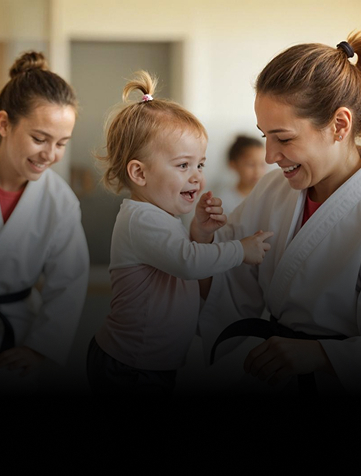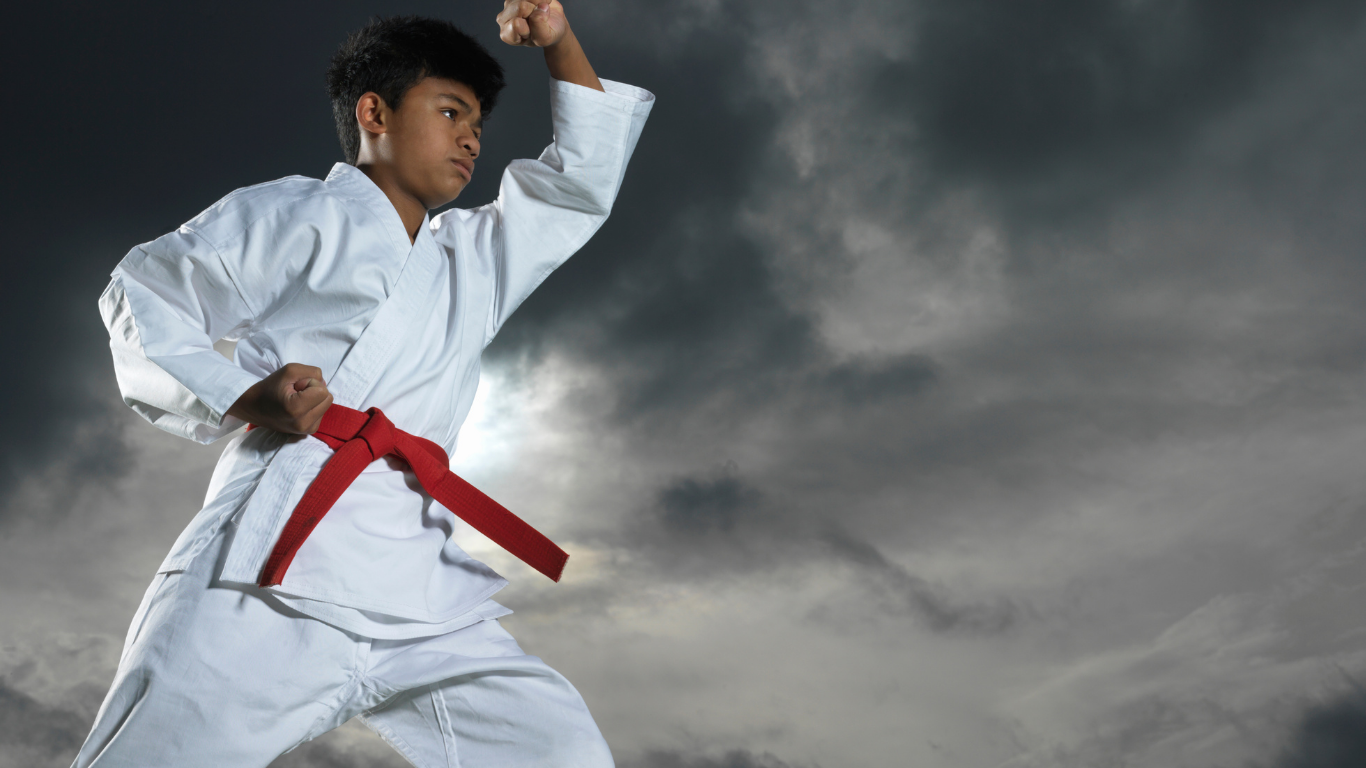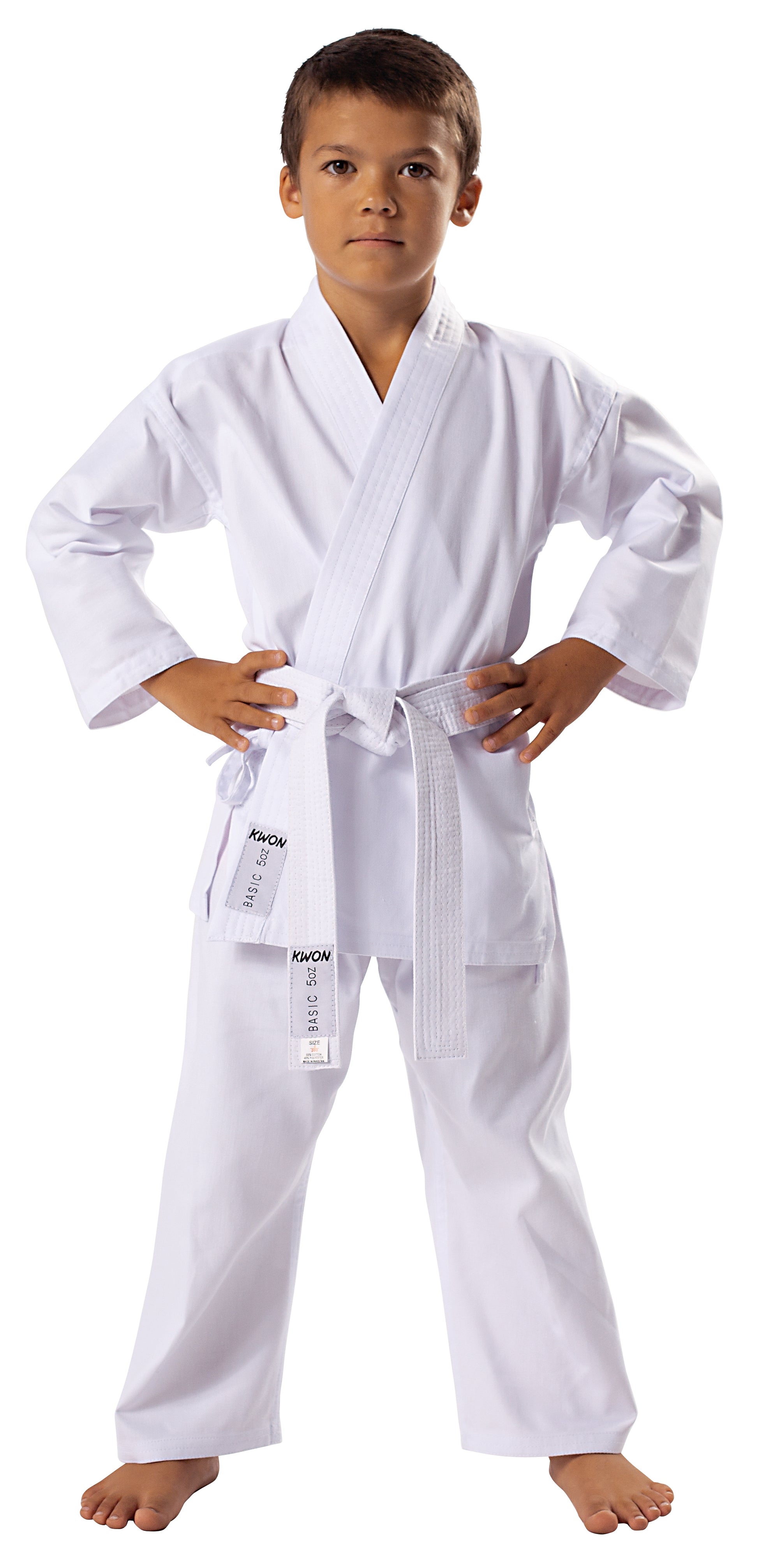Why Every Child Needs To Attempt Karate for Kids: Releasing Potential With Martial Arts for Youngsters
Have you thought about the impact martial arts could carry your youngster? This fighting style offers more than simply physical skills; it cultivates self-confidence, technique, and social links. Each lesson is an action towards individual development and durability that can last a life time. Yet what certain benefits can your kid experience via karate? Allow's check out exactly how this method can support their capacity in means you might not expect.
The Physical Advantages of Karate for Kids
When youngsters technique karate, they not just learn self-defense however likewise gain various physical benefits. Taking part in karate assists boost sychronisation, toughness, and versatility. As they kick, punch, and execute numerous positions, their muscle mass grow stronger and extra toned. You'll see their endurance raising, making daily tasks feel less complicated and more enjoyable.Karate also advertises cardiovascular wellness. The vibrant movements elevate their heart rates, supplying an outstanding workout that sustains total health and fitness. Plus, practicing these methods improves balance, which can be valuable in sports and other physical activities.Moreover, the technique of martial arts motivates children to establish far better stance and body recognition. They'll find out to regulate their activities, which can lower the danger of injuries both in karate and in every day life. All these physical benefits add to a much healthier and more active way of living, establishing a strong foundation for their future.
Building Confidence and Self-worth
Karate helps you face difficulties head-on, showing you that you can conquer barriers with practice and assistance. As you establish and attain objectives, you'll observe a boost in your confidence and self-esteem. This trip not just develops your skills but also transforms exactly how you see yourself.

Conquering Challenges With Each Other
As youngsters face numerous difficulties in their karate trip, they discover to develop self-confidence and self-worth via perseverance and synergy. Collaborating with peers, they take on hard methods and sparring sessions, urging one another to press beyond their limits. These minutes promote a feeling of friendship, showing them that they aren't alone in their battles. When a child gets over a difficulty, whether it's participating or grasping a new step in a tournament, they get a sense of achievement that fuels their self-respect. Each small success enhances the idea that effort causes success. This supportive atmosphere not just strengthens their fighting styles abilities however also grows strength, helping them deal with life's obstacles with newfound self-confidence.
Establishing and Achieving Objectives
Establishing and achieving goals in martial arts empowers kids to develop self-confidence and self-esteem. When you set an objective, whether it's understanding a new method or gaining a belt, you're developing a clear path to success. Each little accomplishment enhances your idea in your capacities, showing you that difficult job settles. As you educate, you'll encounter obstacles, but getting over these difficulties aids you expand stronger both physically and mentally. Celebrating your development, regardless of just how tiny, maintains you motivated. This journey teaches you durability and decision, skills that prolong beyond the dojo. By constantly establishing and getting to objectives, you'll promote a feeling of achievement that improves your self-respect and motivates you to handle new difficulties, both in karate and life.
Developing Discipline and Focus
While many activities can teach children beneficial skills, martial arts like karate distinctly foster technique and emphasis. With structured training sessions, you'll discover your kid learning the importance of routine and dedication. Each course requires them to pay attention meticulously, adhere to directions, and method regularly, reinforcing their capacity to focus on tasks.As they advance and earn brand-new belts, your kid experiences firsthand the incentives of effort and determination. This procedure cultivates a mindset that values persistence, showing them to press with difficulties as opposed to offering up.In karate, focus isn't nearly physical activities; it has to do with mental quality as well. Children discover to clear interruptions and channel their power successfully, both in and out of the dojo. This newfound technique and focus can convert into various other areas of their lives, boosting their academic efficiency and personal partnerships. With karate, your kid is set on a path towards lifelong development and achievement.
Enhancing Social Skills and Synergy
In karate, you'll not just learn fighting styles but likewise construct friendships with practice. Working together in courses motivates team participation, assisting you get in touch with your peers. These experiences foster team effort and boost your social skills, making karate a wonderful method to expand both literally and socially.
Building Friendships With Technique
As children method martial arts with each other, they naturally form bonds that prolong past the dojo. These shared experiences foster friendships, as they encourage team effort and common assistance during training sessions. When working with each other on methods or sparring, children find out to communicate efficiently and depend on each other. This camaraderie helps them develop emotional connections, making it much easier to browse social scenarios both inside and outside the dojo. As they cheer each other on during belt promotions or competitions, their friendships deepen, producing a sense of belonging. Karate not only instructs self-control and emphasis however likewise grows a helpful atmosphere where relationships grow. With method, your kid will get not just martial arts skills, but valuable social skills that last a life time.

Motivating Group Engagement
Just how can group engagement in karate classes improve social skills and synergy? When your youngster methods karate with peers, they learn to communicate properly and interact towards usual goals. Sparring, drills, and team exercises require participation and depend on, promoting strong bonds amongst participants.As they deal with challenges with each other, kids create durability and empathy, crucial parts of teamwork. They'll additionally discover to celebrate each other's successes and support each other during setbacks, constructing a positive atmosphere.Moreover, martial arts motivates regard and self-control, important for engaging in group setups. By participating in this martial art, your child not just sharpens physical abilities but additionally cultivates relationships, improving their general social competence and preparing them for future cooperations in various elements of life.
Teaching Respect and Humbleness
While teaching youngsters karate, instilling regard and humility is just as crucial as grasping strategies. In the dojo, you'll emphasize the value of acquiescing instructors and fellow trainees, developing an environment of common respect. This method shows kids to value others, no matter of their ability level, and comprehend that every person is on their very own journey.Encouraging kids to recognize their blunders fosters humility, assisting them discover that development originates from embracing difficulties. When they experience troubles, advise them that perseverance and a positive mindset are essential.You'll likewise highlight the value of helping others, whether it's using assistance to a struggling classmate or my link showing motivation during method. These lessons in regard and humbleness not just boost their fighting styles trip yet also form them right into kinder, more thoughtful people off the floor covering. By supporting these values, you're aiding them become all-around, respectful members of society.
Encouraging a Healthy Lifestyle
To foster a healthy and balanced way of living in children, it is vital to integrate exercise, well balanced nourishment, and psychological wellness into their daily regimens. Karate for children supplies an enjoyable method to increase their fitness. As they engage in courses, they'll enhance versatility, toughness, and control while establishing discipline.Encouraging your kid to practice martial arts assists them comprehend the significance of regular workout. Coupling this with nutritious dishes will certainly sustain their growth and power degrees. Instruct them to enjoy fruits, veggies, and whole grains, creating a well balanced diet plan that fuels their activities.Additionally, martial arts imparts a sense of regular, promoting uniformity in their lives. As they dedicate to training, they'll learn to prioritize their wellness. By making karate a part of your youngster's life, you're not just supporting their physical capabilities but additionally setting the structure for a lifelong dedication to a healthy lifestyle.
Cultivating Psychological Durability and Stress And Anxiety Relief
Karate not only advertises physical health and fitness yet likewise plays a significant duty in promoting psychological durability and stress and anxiety relief for children. When you take part in martial arts, you learn to deal with challenges and obstacles, helping you establish a solid mental stamina. Each practice instructs you to handle your emotions, whether it's frustration from a challenging strategy or excitement from grasping a new move.The organized atmosphere of karate courses supplies a risk-free room to express feelings and alleviate stress and anxiety. You'll find that concentrating on methods and sparring can sidetrack you from day-to-day worries, allowing you to unwind. Plus, the encouraging neighborhood urges sociability and friendship, which can reinforce your emotional wellness.
Regularly Asked Inquiries
What Age Is Best to Start Karate for Kids?
The very best age to begin martial arts for children is generally between four and six years old. At this age, they're a lot more responsive to discovering, creating control, and structure social abilities via appealing activities like martial arts.
For how long Does It Take to See Improvements?
You'll generally see improvements in your kid's karate skills within a few weeks - Best Martial Arts for Families. Consistent here practice, dedication, and favorable support will certainly increase their development, assisting them acquire confidence and proficiency in martial arts much faster than anticipated

Are There Any Risks of Injury in Martial arts?
Yes, there are some threats of injury in martial arts, like in any sport. Nonetheless, with appropriate training, supervision, and safety and security equipment, you can significantly reduce these threats while appreciating the mental and physical advantages of karate.
What Devices Do Children Requirement for Martial Arts?
For karate, children usually require a gi, which is an uniform, and a belt to signify their rank (Best Martial Arts for Families). Relying on the dojo, they may additionally need safety gear like gloves, shin guards, and a mouthguard
Just How Frequently Should Children Practice Martial Arts Weekly?
Kids need to practice karate at the very least two to 3 times a week. Regular practice assists create skills, develop self-confidence, and enhances fitness. You'll see enhancement and development in their capacities with regular training sessions. When youngsters technique karate, they not only discover self-defense yet also gain various physical advantages. And also, exercising these techniques improves balance, which can be valuable in sports and other physical activities.Moreover, the self-control of martial arts urges children to develop better position and body understanding. While several tasks can educate kids beneficial abilities, martial arts nfl tonight like karate distinctively foster discipline and emphasis. Martial arts not only advertises physical fitness however likewise plays a substantial function in promoting psychological durability and tension alleviation for kids. Kids need to exercise karate at the very least 2 to three times a week.